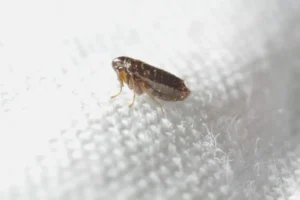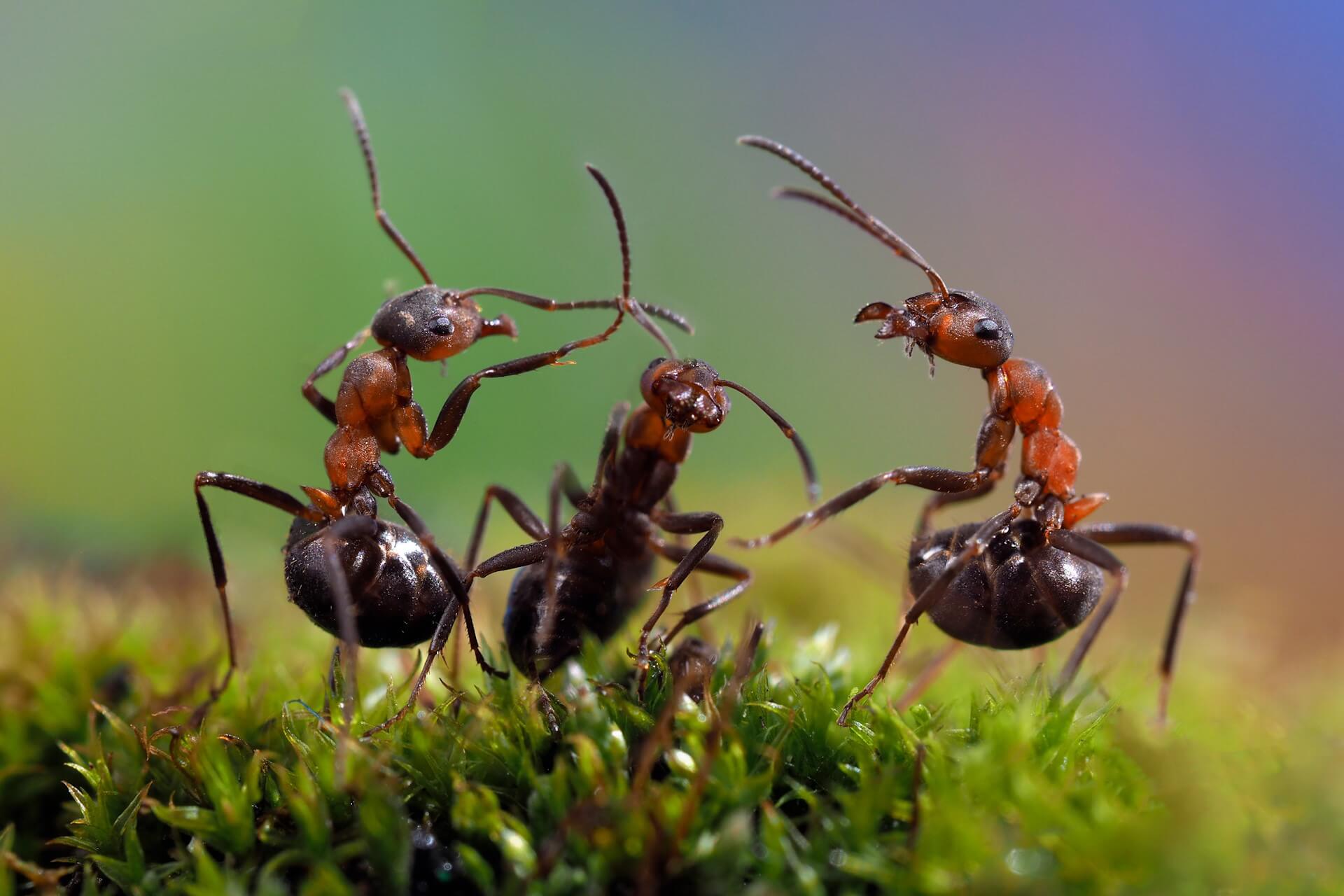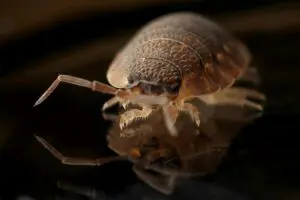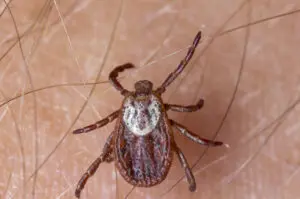

Ants are a constant yet ubiquitous part of all of our lives. Everyday we encounter them, whether in our gardens, our home or crossing the street. Although these little creatures seem innocent, there is a question that needs to be addressed and that is: do ants carry disease?
While these small insects usually go unnoticed in our lives, there are health risks that are actually associated with them, particularly concerning disease transmission. Ants are known for being scavengers, foraging for water and food in a variety of environments. However, this behavior can inadvertently lead to contact with a variety of pathogens such as disease-causing microorganisms and bacteria.
Ants explore their surroundings and come into contact with a variety of surfaces including waste, human food sources and decaying organic matter. In this process, they can pick up and carry dangerous bacteria and viruses, posing a potential threat to human health. This is why when you see ants on food - you should immediately discard the food.
In this article, we take a closer look at the importance of ant pest control and the health risks associated with ants, and explore the ways in which they may transmit disease and the kinds of illnesses that could be spread. By understanding the role of ants in disease transmission, we can better mitigate potential risks and adopt appropriate preventive measures.
Ant Bites & Stings
Not many people know that some ants can actually bite and sting, particularly fire ants and pharaoh ants. There is also a perception that these small bites may be nothing more than a momentary annoyance but the reality is that some ant species can create serious symptoms or even illness through their bites. A pharaoh ants bite can be quite ominous. Pharaoh ants, also referred to as Monomorium pharaonis, are small, light brown ants that are notorious for their invasive nature and ability to thrive in diverse environments. Found worldwide, these ants are known for their rapid reproduction rates, challenging eradication, and potential role in transmitting diseases, making them a significant nuisance in homes and businesses.
When provoked or threatened, pharaoh ants and other ant species can deliver painful bites and stings, injecting venom into their victims. For some people, particularly those allergic to insect venom, these bites can trigger severe allergic reactions that require immediate medical attention. In addition to physical discomfort, some ant bites and stings can lead to secondary infections if not properly treated, further exacerbating the risk to health.
Beyond the above mentioned effects, certain ant species, including fire ants and harvester ants, are known for their potent venom that can cause intense pain, swelling, and in severe cases, systemic reactions. With this in mind, it's essential to recognize the potential dangers associated with ant bites and stings and take appropriate precautions to minimize risk.
Food Borne Disease Organisms
Can ants make you sick if you find ants on food? As stated previously, ants are well known for their scavenging behavior, which often brings them into contact with a variety of food sources, including those intended for human consumption.
As they search for food, ants can pick up pathogens such as E. coli and Salmonella, among a variety of others, from contaminated surfaces. Once contaminated, ants have the ability to carry these disease-causing organisms back to their nests, where they may come into contact with stored food supplies or even directly contaminate food meant for human consumption. Because of this, ants serve as vectors for the spread of foodborne illnesses, posing a significant risk to public health. Proper food storage and sanitation practices are essential to minimize the risk of ant-mediated transmission of pathogens and ensure the safety of food supplies.
Do ants carry disease and what diseases do ants carry?
Due to their foraging and scavenging behavior, ants pose significant risks of cross-contamination, foodborne illnesses, and infection transmission.
With the above in mind, one of the most concerning aspects of ant infestations is their potential to cause cross-contamination. As ants walk across various surfaces in search of food and water, they can pick up harmful pathogens such as bacteria and viruses. These pathogens can then be transferred to other surfaces, including kitchen countertops, food utensils, and food storage areas. Without proper hygiene practices, this cross-contamination can lead to the spread of diseases among household members.
But what diseases do ants carry? As ants have a propensity to invade food storage areas and contaminate food supplies, they pose a direct threat of foodborne illnesses. Common pathogens carried by ants include E. coli and Salmonella, which can cause serious gastrointestinal infections when ingested. Contaminated food items may also go unnoticed, leading to unsuspecting individuals consuming infected food and falling ill as a result. The consequences of foodborne illnesses can range from mild discomfort to severe dehydration and even hospitalization.
In addition to transmitting pathogens through cross-contamination and food contamination, ant infestations can also pose risks of infection through bites and stings. Certain ant species, including pharaoh ants and fire ants, are known for their aggressive behavior and painful bites. These bites can break the skin, providing an entry point for bacteria and other microorganisms, increasing the risk of infection.
To mitigate the health risks associated with ant infestations, professional pest control services like Excel Pest Services offer a comprehensive solution. Through targeted treatments and proactive prevention strategies, pest control experts can effectively eliminate ant infestations and minimize the risk of disease transmission.
By addressing the root cause of the problem and implementing preventive measures, professional pest control services help ensure a safe and healthy environment for residents.

Asthma, Allergens, Respiratory Problems
Research has increasingly linked ants, especially Pharaoh Ants, to respiratory issues. This highlights the importance of professional pest control measures. These tiny insects can become unwelcome intruders in homes, workplaces, and other indoor environments, where they can exacerbate respiratory conditions such as asthma and allergies.
For individuals with sensitivities to insect allergens, exposure to ant infestations can trigger allergic reactions ranging from mild irritation to severe respiratory distress. The presence of ant colonies in indoor spaces can also contribute to poor indoor air quality, as their droppings and shed exoskeletons can become airborne and aggravate respiratory symptoms.
Professional pest control services play a crucial role in effectively managing ant infestations and minimizing the risks to respiratory health.
Contact the Experts
When faced with the challenges of ant infestations and the associated health risks, seeking professional pest control services is the most effective solution for creating a safe and healthy environment. While DIY methods may offer temporary relief, they often fail to address the root cause of the infestation, leading to recurring problems and continued exposure to health hazards.
Excel Pest Services has the knowledge, experience, and resources necessary to tackle ant infestations comprehensively or help you take preventative measures when it comes to ant infestation. By conducting thorough inspections, identifying conducive conditions, and implementing targeted treatment strategies, our pest control professionals can eradicate ant colonies and prevent future infestations.
By entrusting ant infestation management to Excel Pest Services, you can protect yourself and your loved ones from the health risks associated with disease-carrying ants. Don't compromise on safety when it comes to pest control, contact the experts and take proactive steps towards a pest-free and healthy living environment.
Contact Excel Pest Services for your commercial pest control and residential pest control needs today.
Humans can get sick from ants. Species like Pharaoh Ants can carry and transmit pathogens such as bacteria and viruses. These pathogens have the ability to cause a range of illnesses, from mild gastrointestinal infections to more severe systemic diseases.
Ants in the US can carry disease. While not all species of ants are known to transmit
diseases, some common species like Pharaoh Ants have been implicated in the spread of pathogens.
Ants can transmit various infections to humans through direct contact or contaminated food sources. Some of the infections associated with ants include gastrointestinal illnesses caused by bacteria such as E. coli and Salmonella. Ants can also cause skin infections resulting from ant bites and stings.
Garden ants can carry disease, although the risk may vary depending on factors such as the specific species of ant and environmental conditions. While garden ants are not typically associated with as high a risk of disease transmission as certain other species, it's still important to practice good hygiene and pest control to minimize potential health risks.






